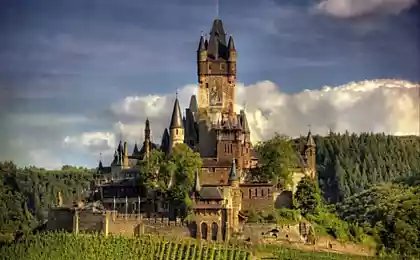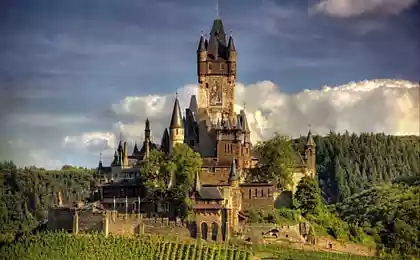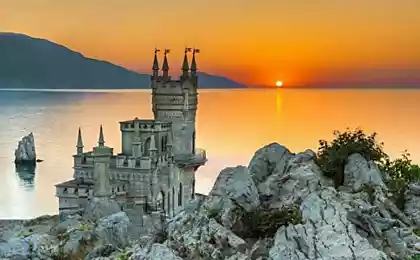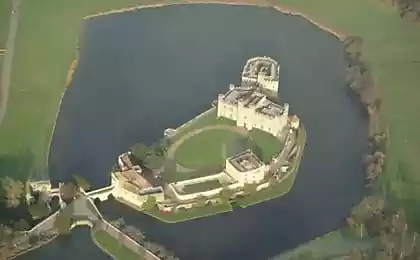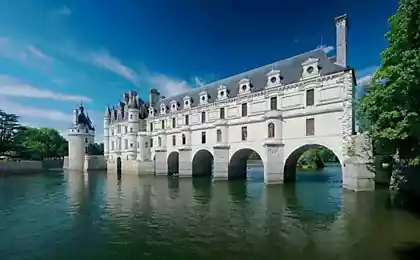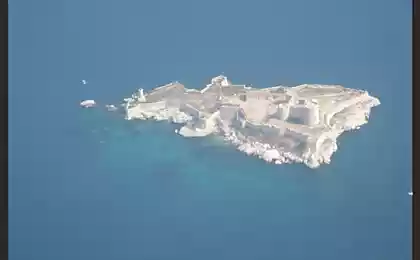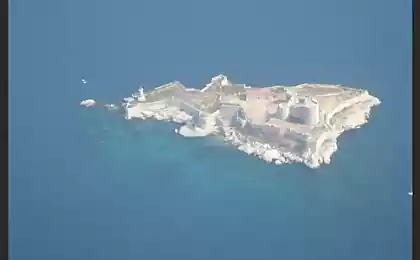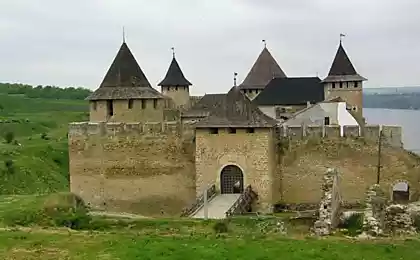528
The City Of Rivne
The Schloss drachenburg castle is a striking example of neo-Gothic architectural style, very popular in the late nineteenth century.
In the South German Federal state of North Rhine — Westphalia is an amazing castle, amazing beauty and elegance of their facades. The Schloss drachenburg castle stands on the right Bank of the Rhine, on the slope of the Drachenfels mountain, which got its unusual name.
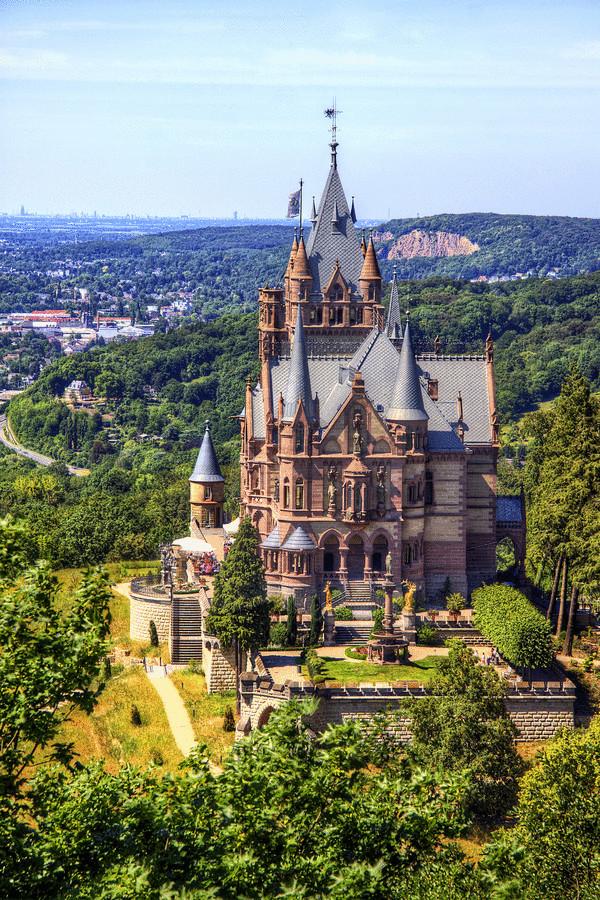
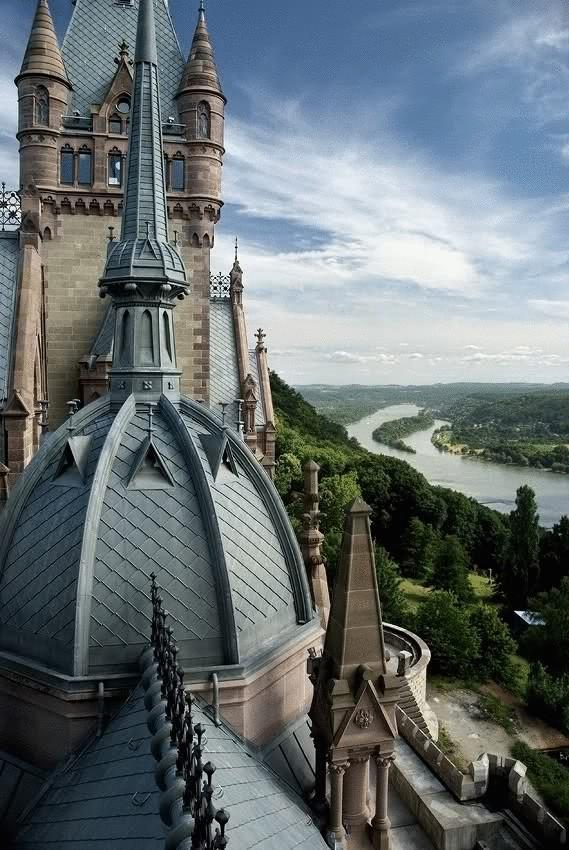
To twist the nest in this cozy green area of Westphalia decided the Baron Stefan von Zarter, suddenly found that due to the prolonged exchange activities in his wallet has accumulated a tidy sum.
For the construction of the castle took just three years — from 1882 to 1884. The project had attracted local düsseldorf architects Leo von Abbema and Bernhard Tushaus, and later, with the aim of fine of its completion, Baron has hired another prominent German architect Wilhelm Hoffmann. Upon completion of the Schloss drachenburg castle was named the largest of these lands Palace complex of the XIX century.
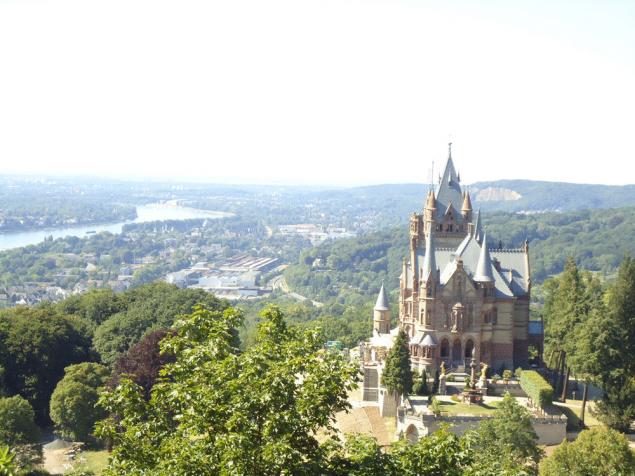
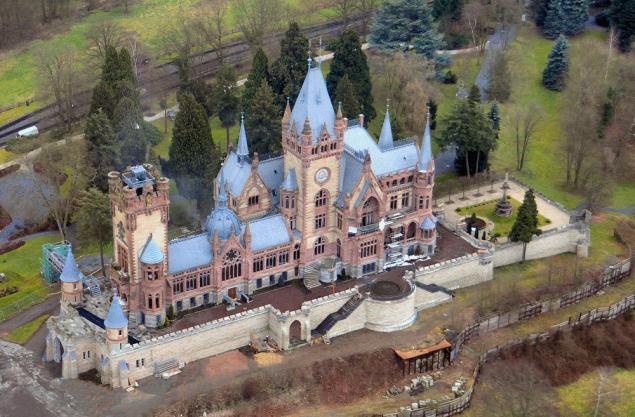
Of Rivne built in a unique style, combining elements of castle and Palace architecture, so to call it just a castle or Palace is actually not very correct, but since his appearance is still more "samawati" — today it is officially referred to only as the city of Rivne.
In 1902, Baron von Sarter died, leaving no direct heirs, so his child passed into the hands of his nephew Jacob Biesenbach, staged in the luxurious rooms of the castle luxury hotel.
After Biesenbach of Rivne "went on hands" — the amazing beauty of the interiors, richly decorated with tapestries and frescoes, at the time, was located a Catholic boarding school, railway school, and even the Nazi military school. Had not escaped the castle and deplorable fate of looted cleaned during the Second world war the historical buildings in the castle Park was placed German anti-aircraft defense complex during the war, shelled by the artillery of the allies along with the castle itself. What is left of an extensive collection of priceless art objects were exported to America.
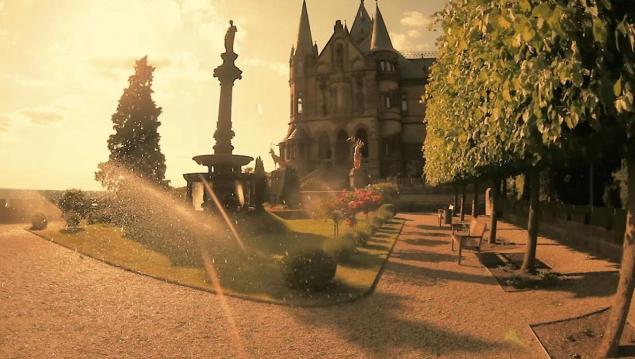
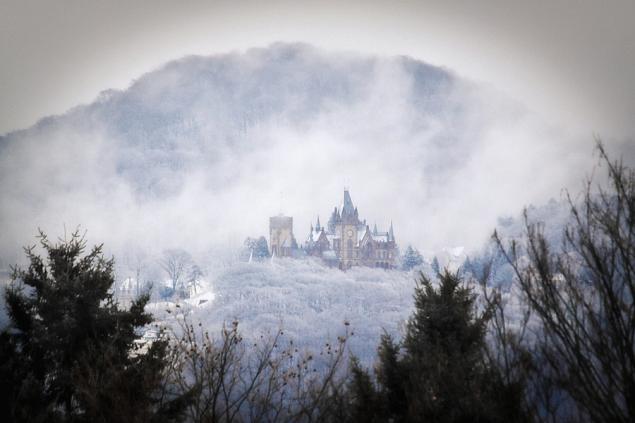
From that moment on the ruined castle forgotten — he stood in a derelict state until 1970, when local authorities decided on its demolition. Pearl neuroticeski architecture of the late nineteenth century would have been destroyed if not for the emergence of an unknown private investor in the last moment before demolition bought the ruins and started the restoration of the former beauty and grandeur of Schloss drachenburg castle.
During private restoration were restored nearly the whole castle and part of its interior, the walls of which depict scenes from the heroic past of the country. Including has been restored so-called "room of the Nibelungs", the frescoes which cover the events of the most famous legends of Germany, and the interior of the castle is furnished in the style of the era during its construction.
At the turn of XX-XXI centuries was restored southern facade of Drachenburg and "Venus terrace" in the castle Park.
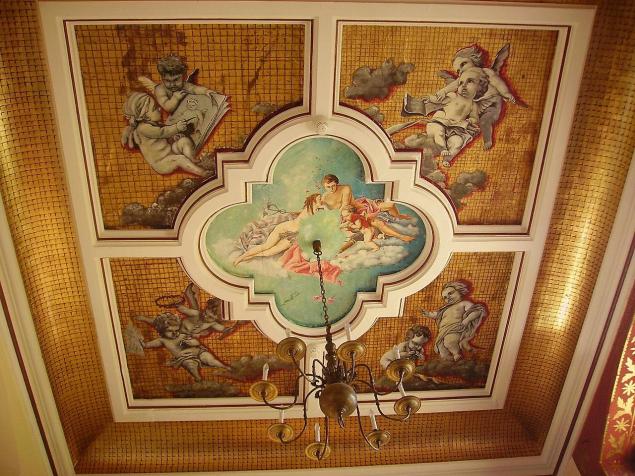
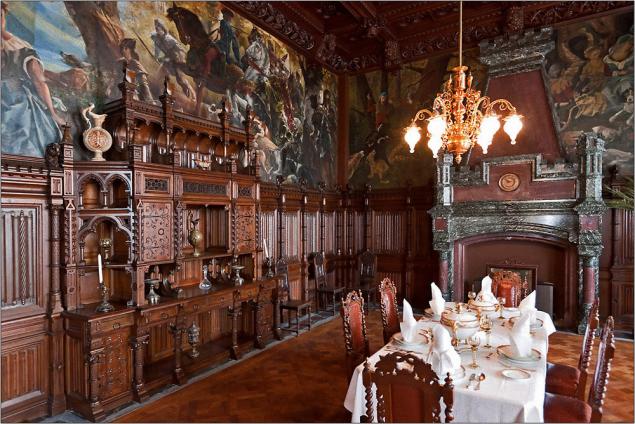
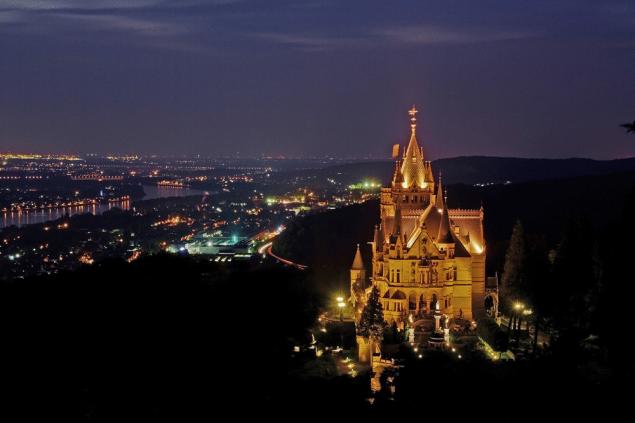
Source: /users/104
In the South German Federal state of North Rhine — Westphalia is an amazing castle, amazing beauty and elegance of their facades. The Schloss drachenburg castle stands on the right Bank of the Rhine, on the slope of the Drachenfels mountain, which got its unusual name.


To twist the nest in this cozy green area of Westphalia decided the Baron Stefan von Zarter, suddenly found that due to the prolonged exchange activities in his wallet has accumulated a tidy sum.
For the construction of the castle took just three years — from 1882 to 1884. The project had attracted local düsseldorf architects Leo von Abbema and Bernhard Tushaus, and later, with the aim of fine of its completion, Baron has hired another prominent German architect Wilhelm Hoffmann. Upon completion of the Schloss drachenburg castle was named the largest of these lands Palace complex of the XIX century.


Of Rivne built in a unique style, combining elements of castle and Palace architecture, so to call it just a castle or Palace is actually not very correct, but since his appearance is still more "samawati" — today it is officially referred to only as the city of Rivne.
In 1902, Baron von Sarter died, leaving no direct heirs, so his child passed into the hands of his nephew Jacob Biesenbach, staged in the luxurious rooms of the castle luxury hotel.
After Biesenbach of Rivne "went on hands" — the amazing beauty of the interiors, richly decorated with tapestries and frescoes, at the time, was located a Catholic boarding school, railway school, and even the Nazi military school. Had not escaped the castle and deplorable fate of looted cleaned during the Second world war the historical buildings in the castle Park was placed German anti-aircraft defense complex during the war, shelled by the artillery of the allies along with the castle itself. What is left of an extensive collection of priceless art objects were exported to America.


From that moment on the ruined castle forgotten — he stood in a derelict state until 1970, when local authorities decided on its demolition. Pearl neuroticeski architecture of the late nineteenth century would have been destroyed if not for the emergence of an unknown private investor in the last moment before demolition bought the ruins and started the restoration of the former beauty and grandeur of Schloss drachenburg castle.
During private restoration were restored nearly the whole castle and part of its interior, the walls of which depict scenes from the heroic past of the country. Including has been restored so-called "room of the Nibelungs", the frescoes which cover the events of the most famous legends of Germany, and the interior of the castle is furnished in the style of the era during its construction.
At the turn of XX-XXI centuries was restored southern facade of Drachenburg and "Venus terrace" in the castle Park.



Source: /users/104


